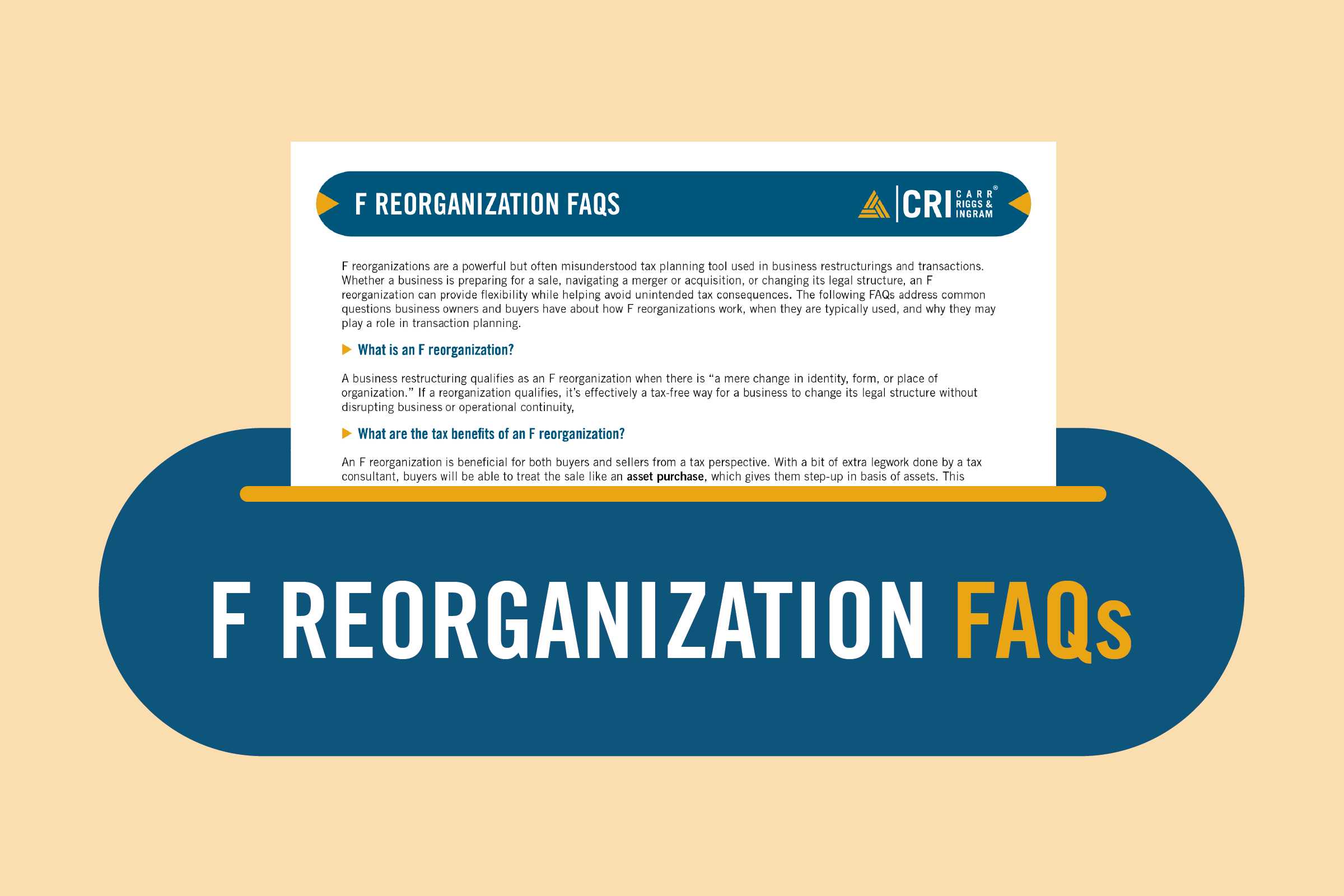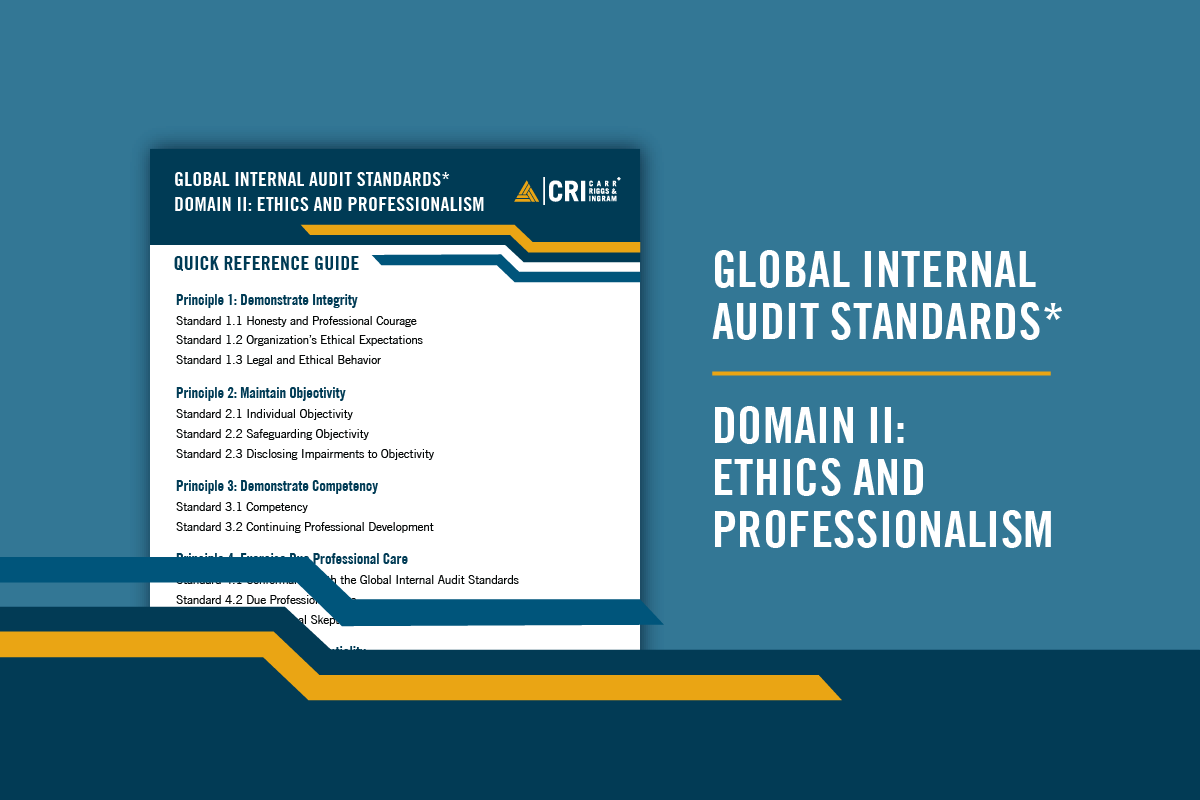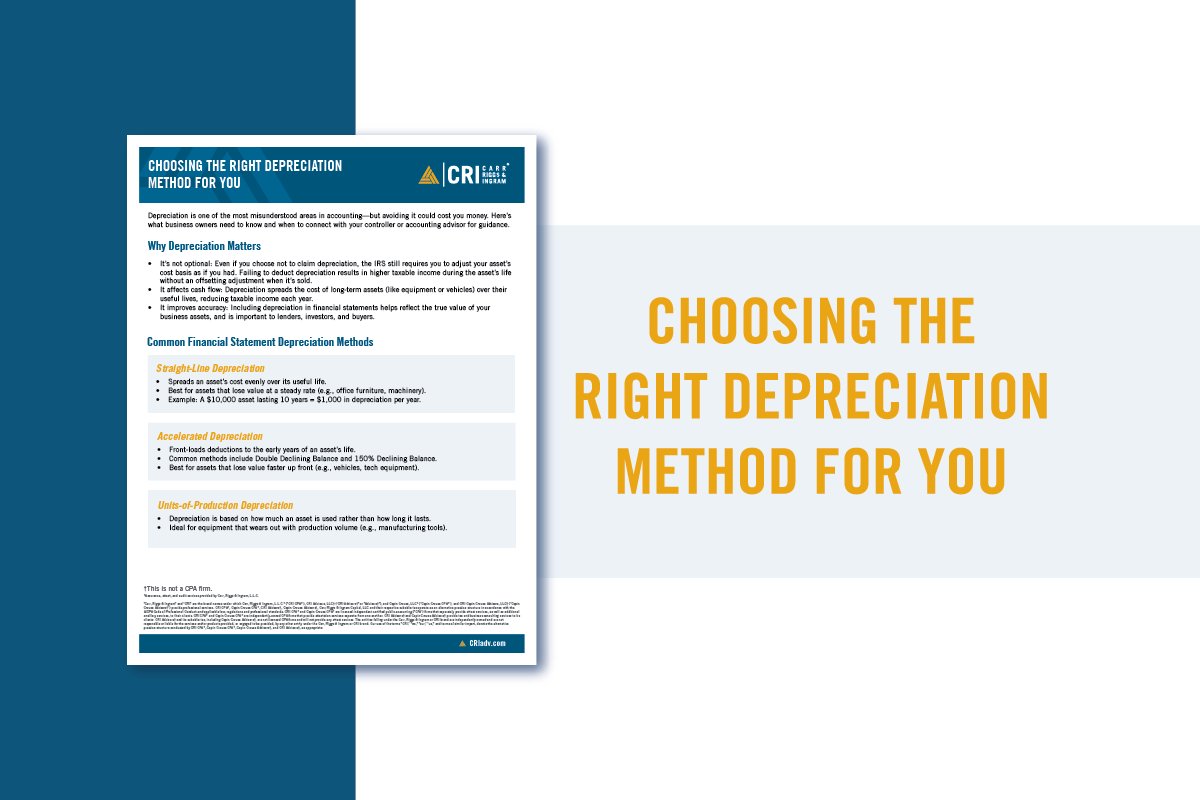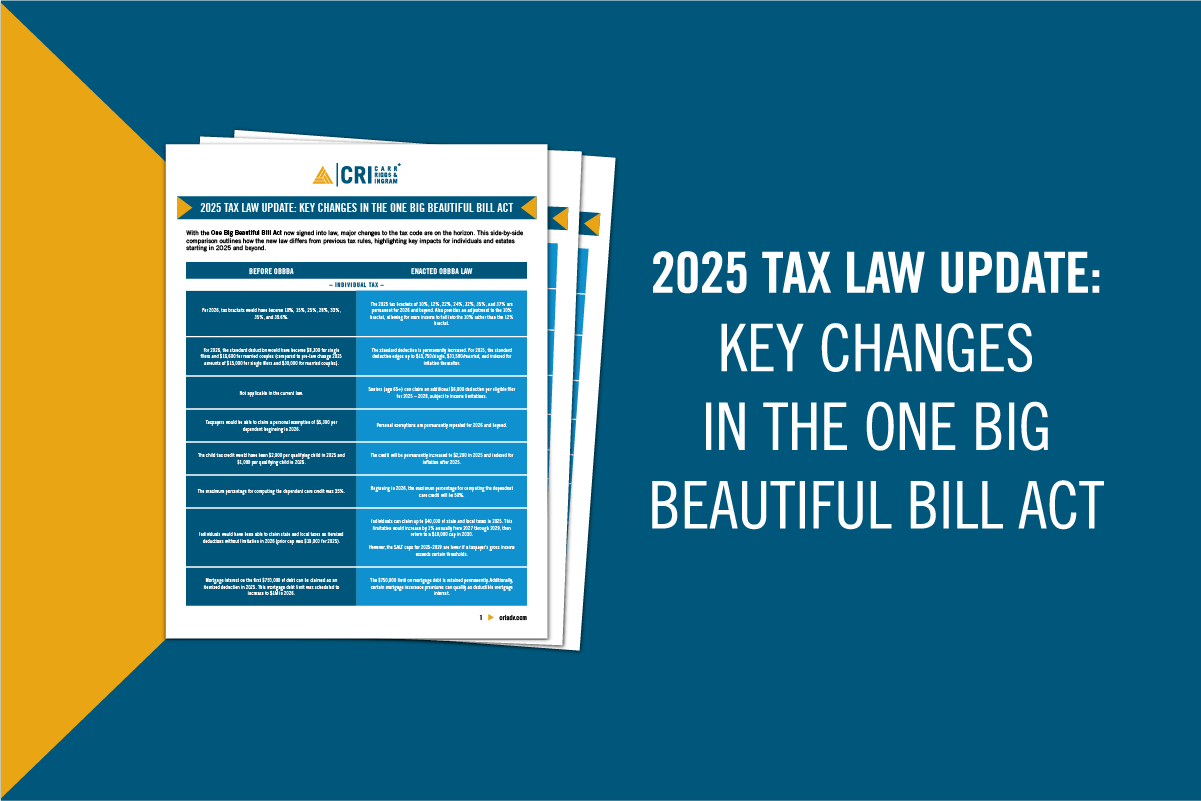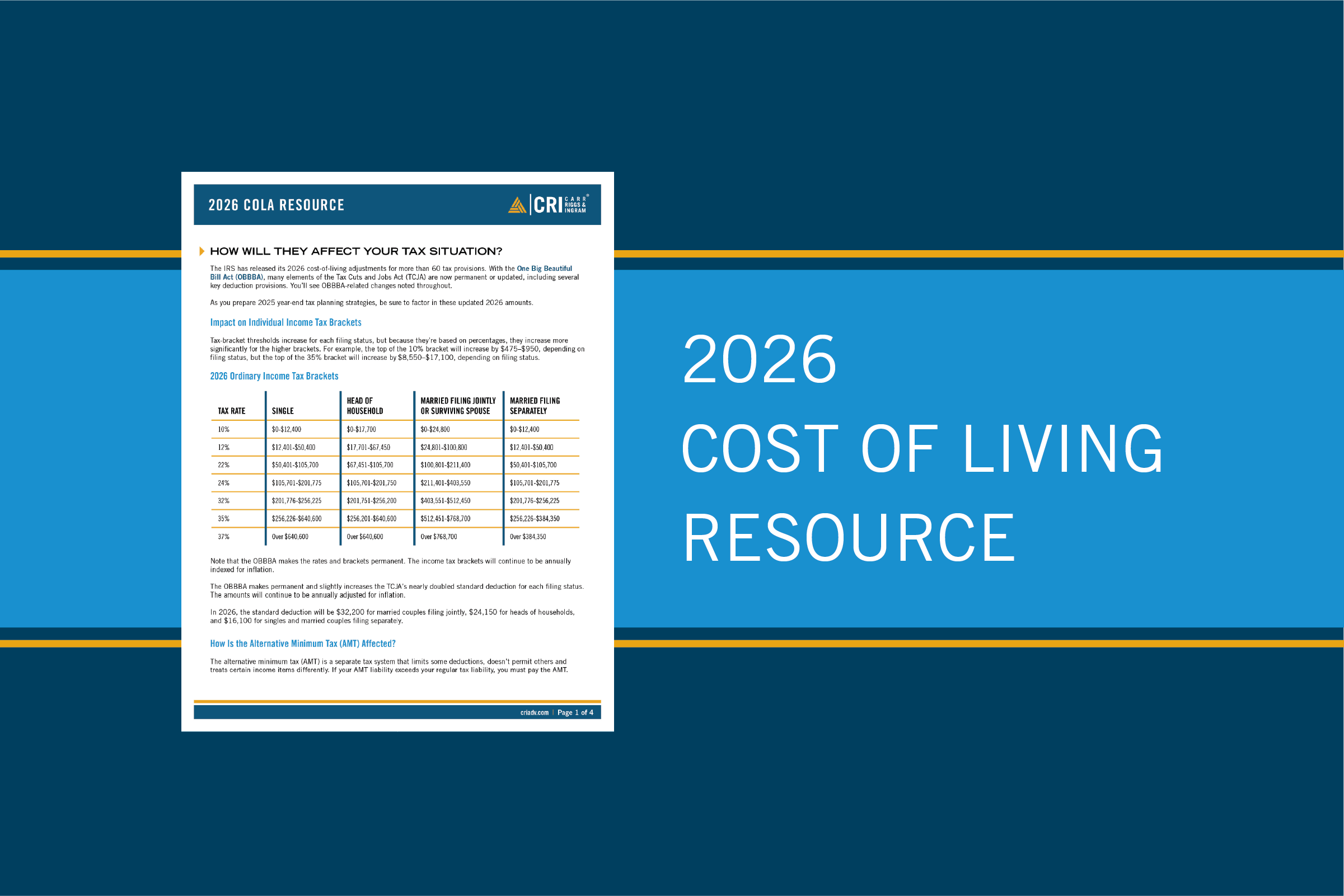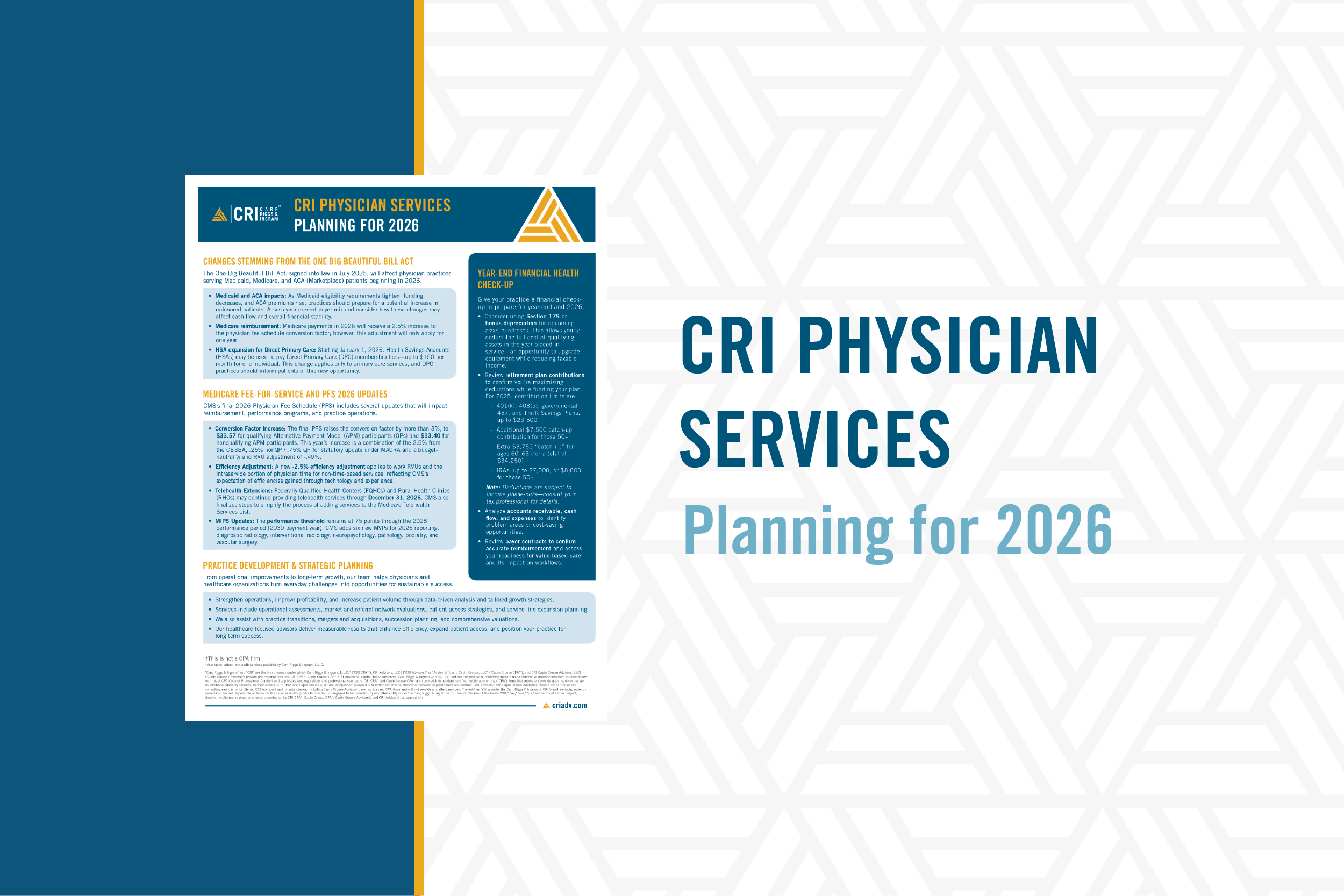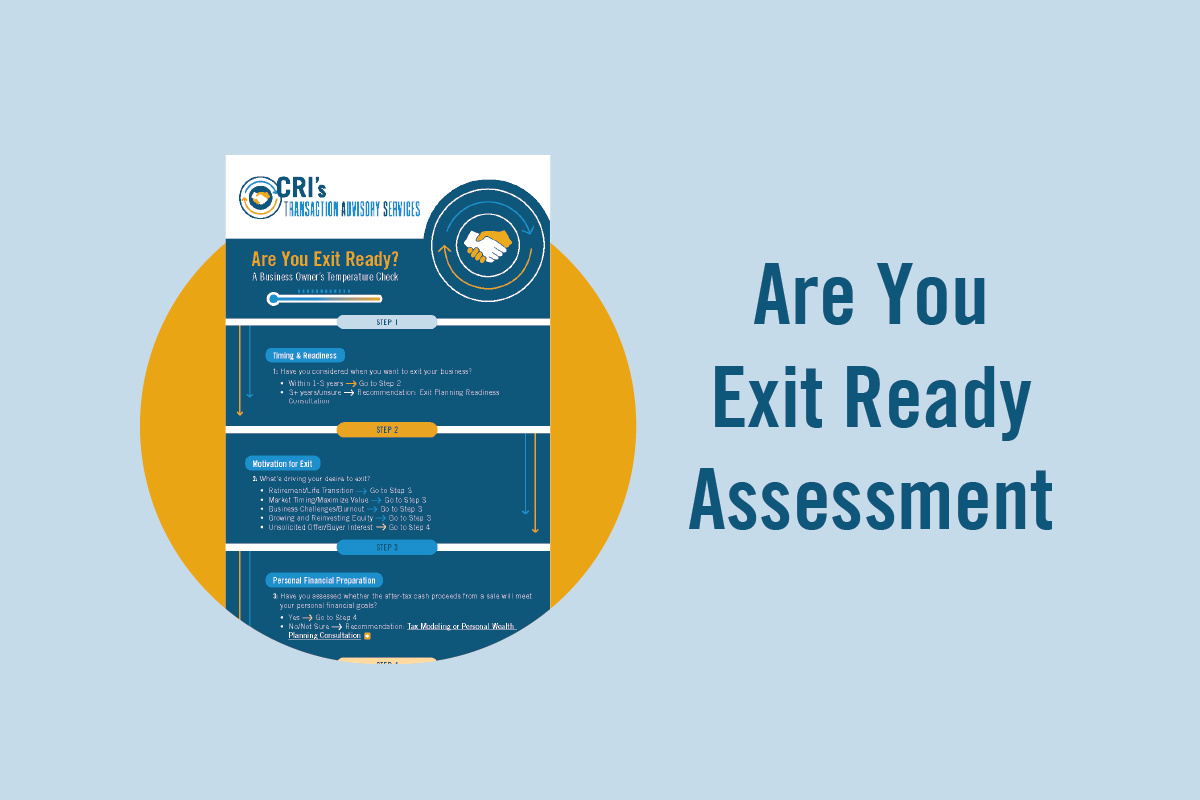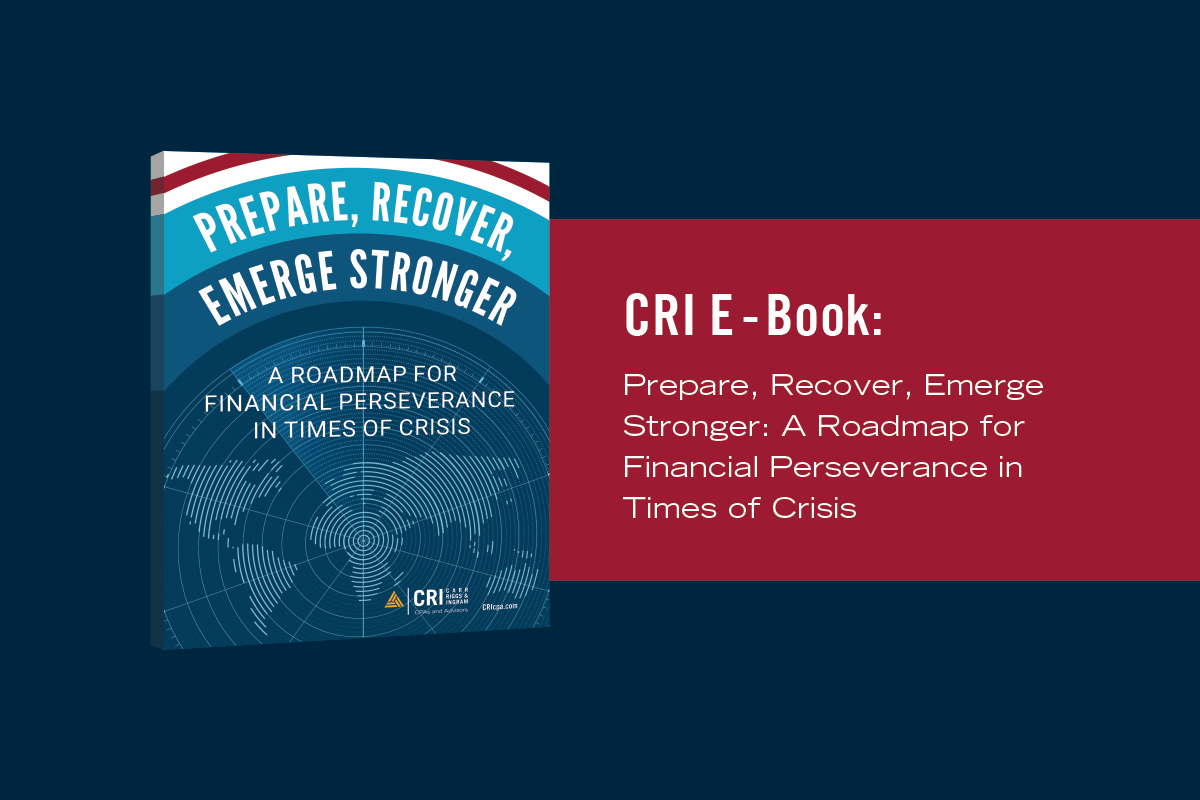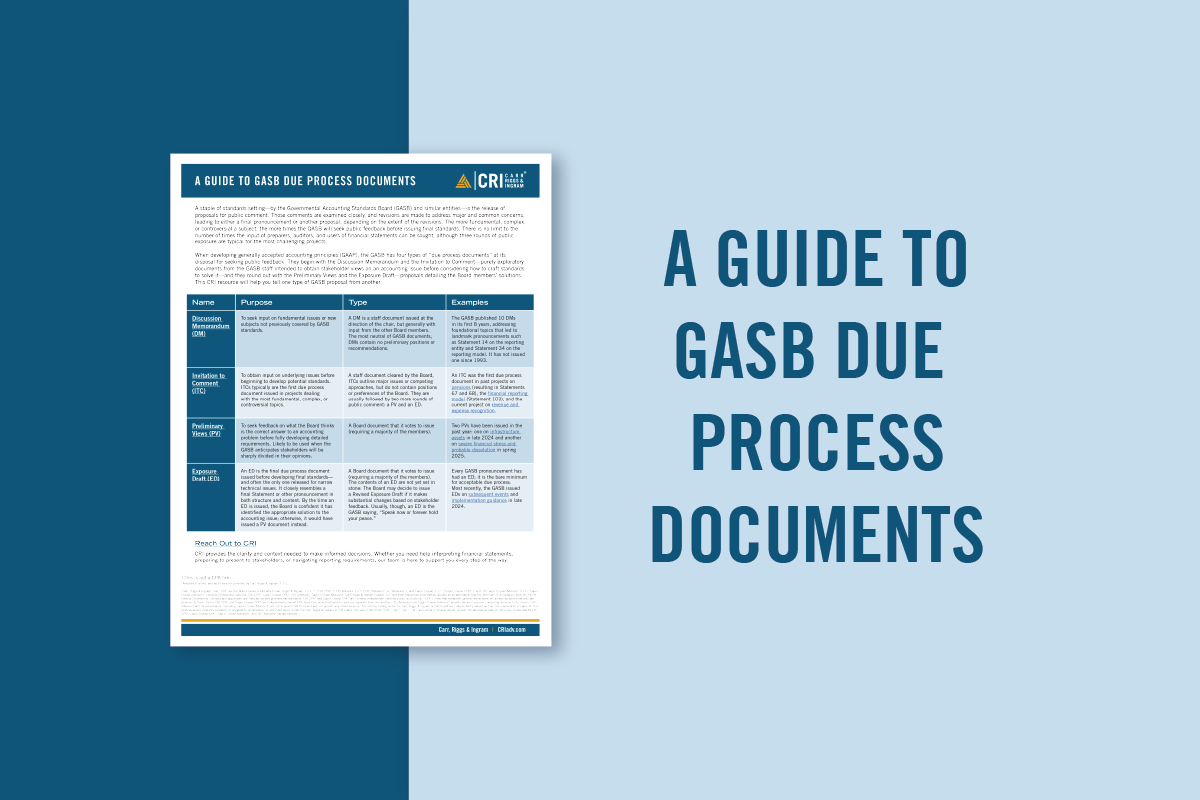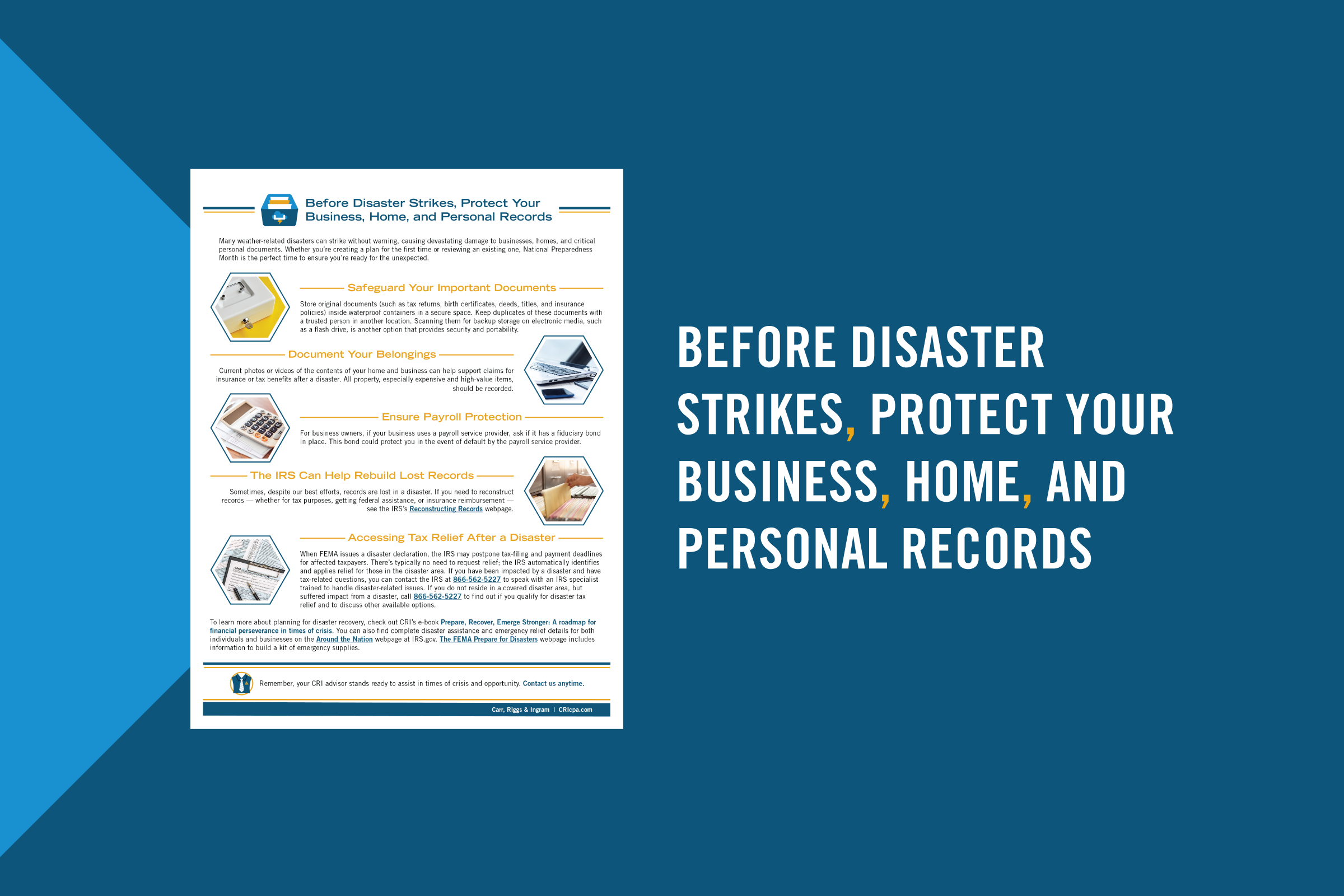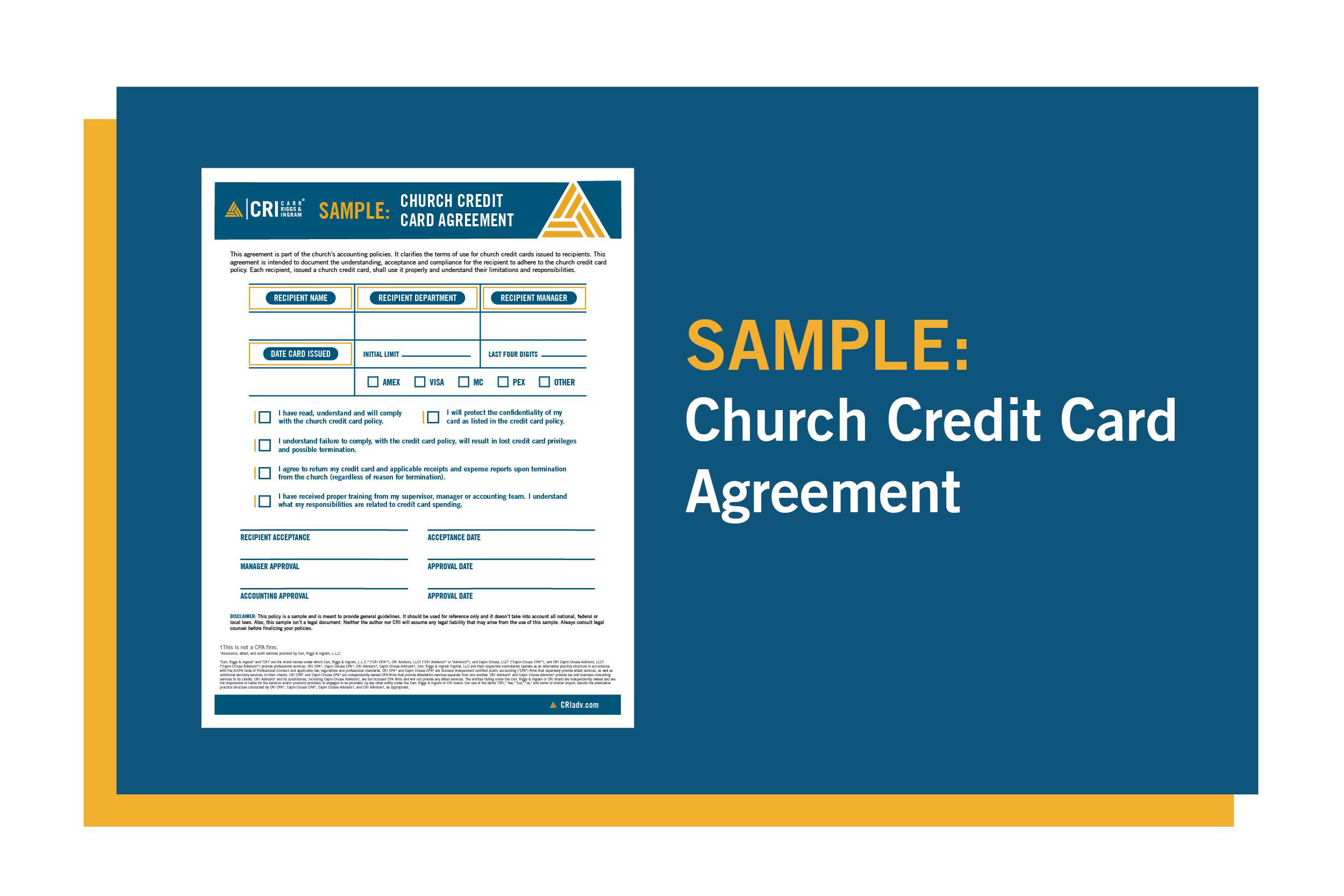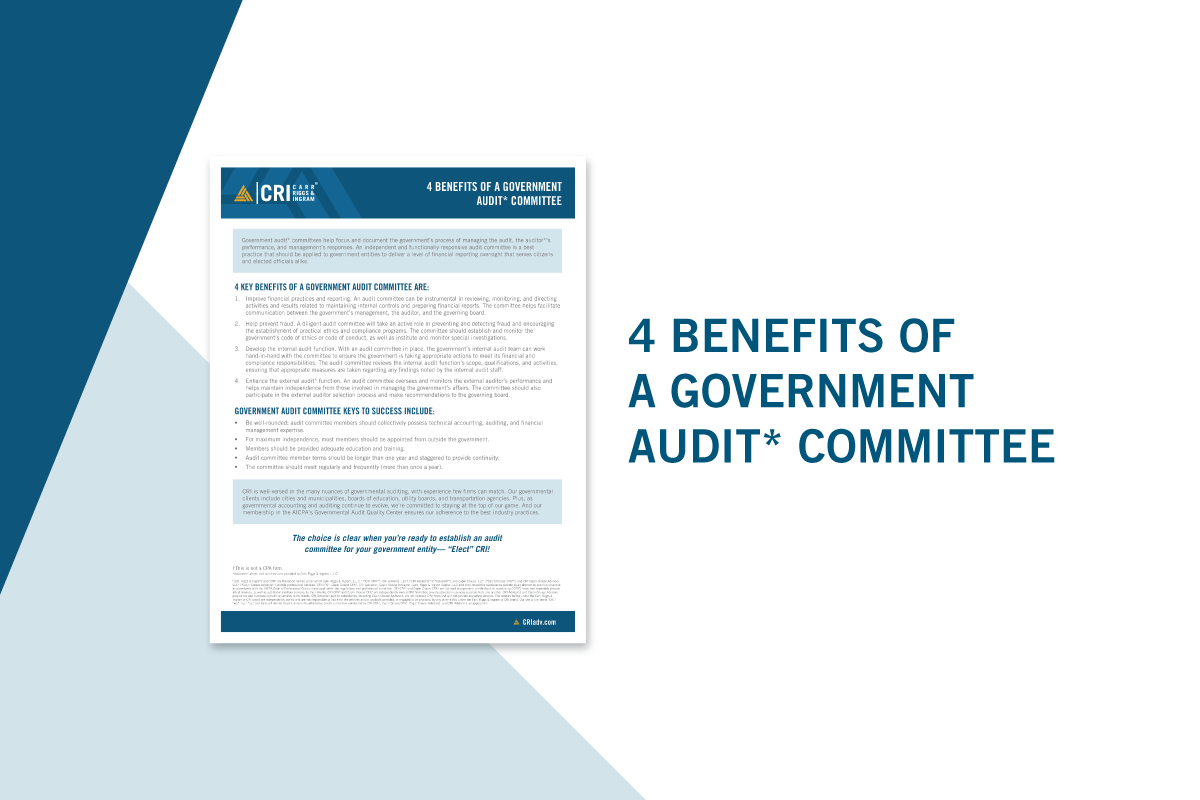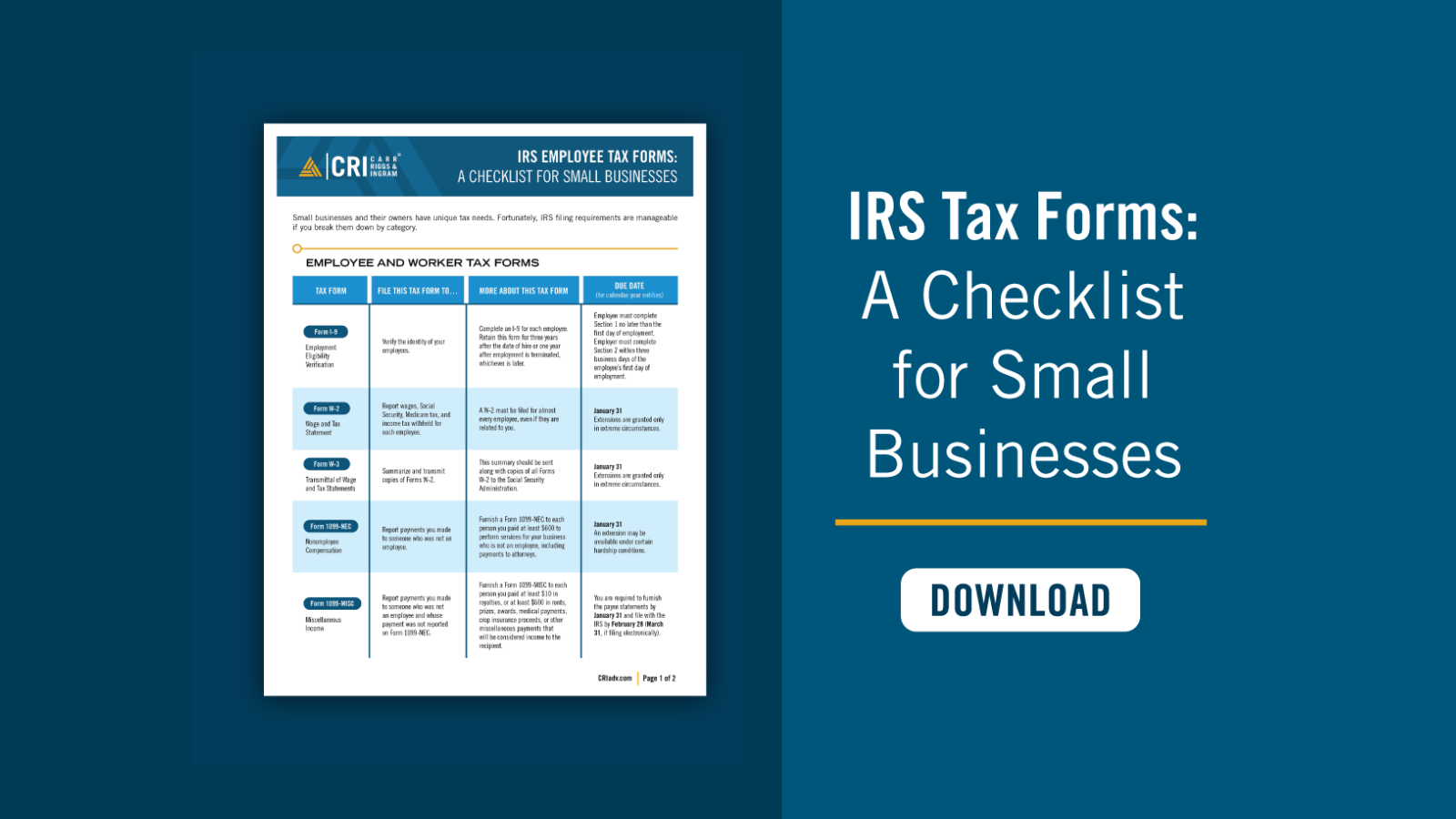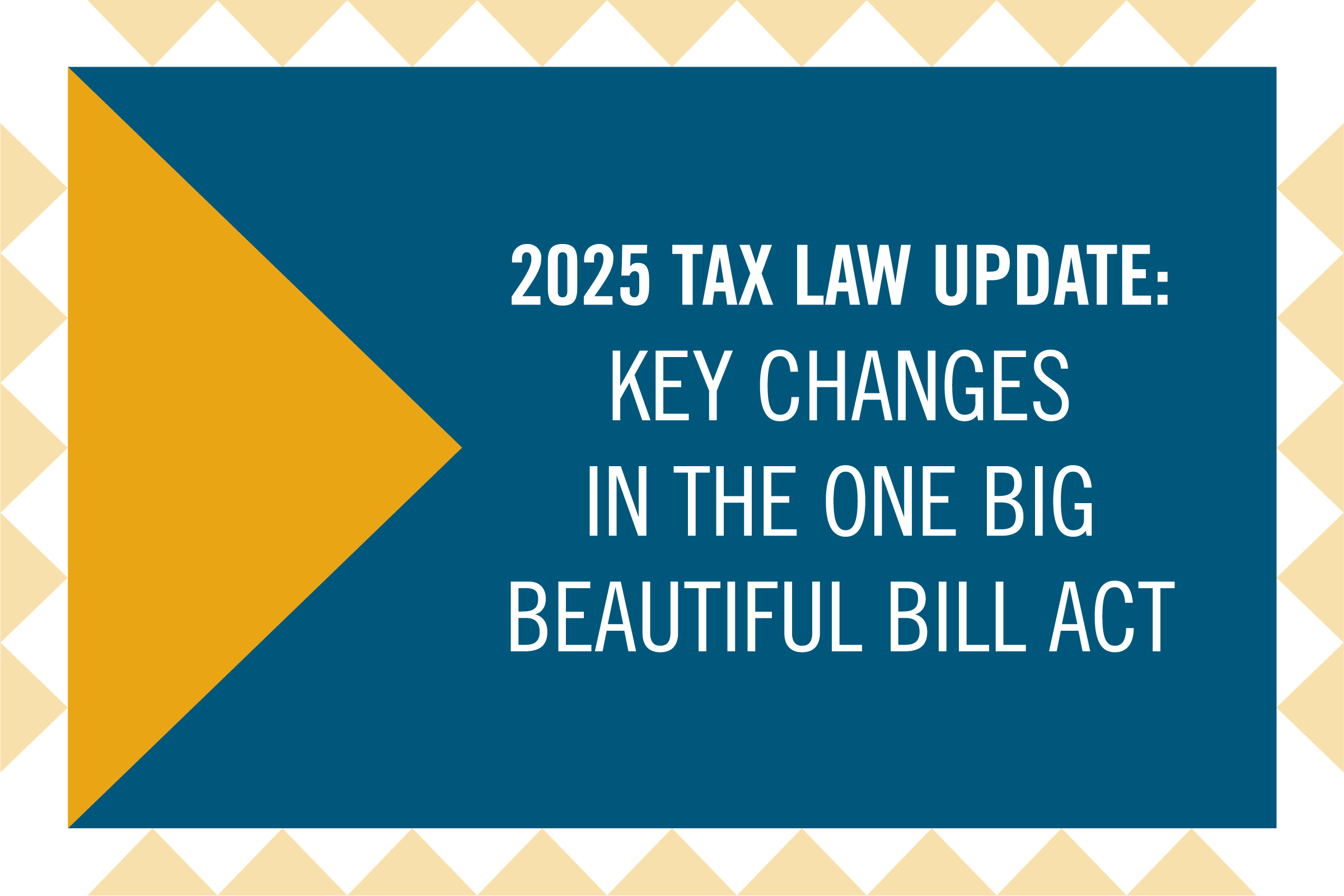Time Is Ticking on Business Valuation for Estate Planning
- Contributors
- Amy G. Hightower
- Jeremy C. Jennings
Jul 15, 2024
The historically high estate tax exemption, which was essentially doubled in 2018 by the Tax Cuts and Jobs Act (TCJA), will likely sunset on January 1, 2026. This could put many business-owning families directly in the crosshairs of the estate tax. Although optimists hold out hope for a last-minute congressional deal to extend the higher exclusion, waiting is risky.
Heirs of taxable estates that exceed the federal exemption — expected to fall from more than $13 million ($27 million for married couples) in 2024 to approximately $7 million ($14 million for married couples), when adjusted for inflation — could be hit with federal estate tax rates as high as 40% when their loved ones pass away.
For individuals and families that own one or more businesses, planning for this potential estate tax liability has an added wrinkle. The value of those businesses is a critical component—often the biggest piece—of the estates of those family members. That brings us to the intersection of estate planning and business succession planning.
For small business owners, succession planning and estate planning are often commingled. Actually, they are two very different but equally important types of planning for the benefit of future generations. A critical common piece of information needed to achieve the goals of both succession planning and estate planning is a business valuation.
Business Valuation: The Foundation of Both Succession Planning and Estate Planning
Estate planning involves strategies to protect all the assets in your estate — from ownership interests in the business to your mutual fund portfolio to your grandma’s jewelry and other collectibles. Succession planning relates specifically to plans and protocols put in place to make the business transition go as smoothly as possible.
Both types of planning build on a foundation of knowing what the business is worth. Many owners believe that they intuitively know what their companies are worth. Usually, though, they're too close to the business to see it objectively. When you go to an industry conference and hear a number thrown around — “Manufacturing companies trade at five times EBITDA” — it’s natural to latch on to that number and use it as a benchmark for your company. In reality, there are a large number of factors that go into the valuation of a company. It's far too complex an analysis to boil down to a single rule of thumb.
Know (Don’t Guess) What Your Business Is Worth
For many business owners, the business is their estate. If the company is worth less than you thought, it will likely put a crimp in your retirement plans. It’s better to know the true value well in advance of your transition — ideally at least five years — to give you time to make the changes that will reap what the business is worth in your eyes.
On the flip side, the valuation might reveal that the business is worth more than you thought. This would certainly be a happy surprise for most business owners. However, suppose your business is on the cusp of the lower exemption that is likely to take effect in 2026. In that case, you will need to plan for the impact of the estate tax on your loved ones.
A professional valuation will also help justify the value in the event of an IRS or state tax audit*. If you sell the business to family or key members of management, you will likely be taking advantage of discounts for lack of marketability or lack of control. In the event the IRS scrutinizes the transaction, a professional valuation will help you and your heirs support that value.
No matter how you plan to exit the business, investing in a professional business valuation is likely a wise investment. Think of it this way: If you sold your house, you would want to know the value first. And if the value were lower than what you expected, you would probably consider whether to make improvements before putting it on the market. However, while most of us have a sense of what drives the value of a home, business owners don’t always know what drives the value of their business. A professional who is accredited in business valuation will identify opportunities to improve the value of the business, such as decreasing customer concentration or hiring a professional management team.
Consider Needs of the Whole Family in the Planning Process
Both estate planning and succession planning are done for the benefit of future generations, so involve everyone who has an interest in the long-term plan. In addition to family members who currently work in the business, don’t forget those who might be hands-off today but have expressed a desire to work in the family business “one day.”
Bring these key family members to the table with your professional advisory team to discuss the needs and goals of the family as a whole, starting with your own. Do you want to transfer the operations of the business to your children during your lifetime? If you plan to retire, what are your retirement goals? Do you want money to travel?
Next, consider the needs and desires of your heirs. Do any of your kids (or grandkids) want to take over ownership or operation of the business (or both)? If they’re ready now, consider whether it’s time to start transferring ownership shares or leadership responsibilities.
If no one in the family wants to take over the business, what are your options to achieve a successful business transition while reducing the tax burden on the next generation?
Act Now to Protect Your Legacy
Right now, you have plenty of options to protect the value of your estate, but waiting can have severe consequences. Reach out to CRI’s accounting and business planning advisors today. No matter the size of your business, we will work with you to design a plan that suits your needs.






